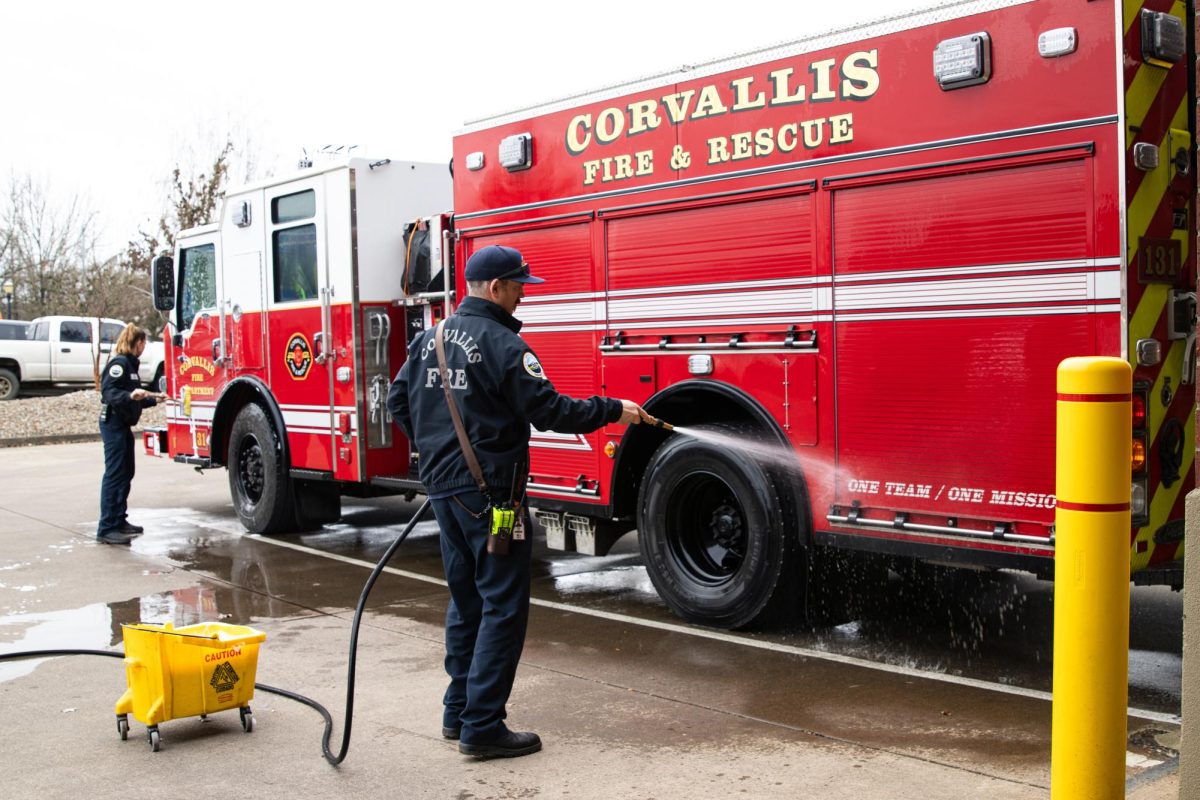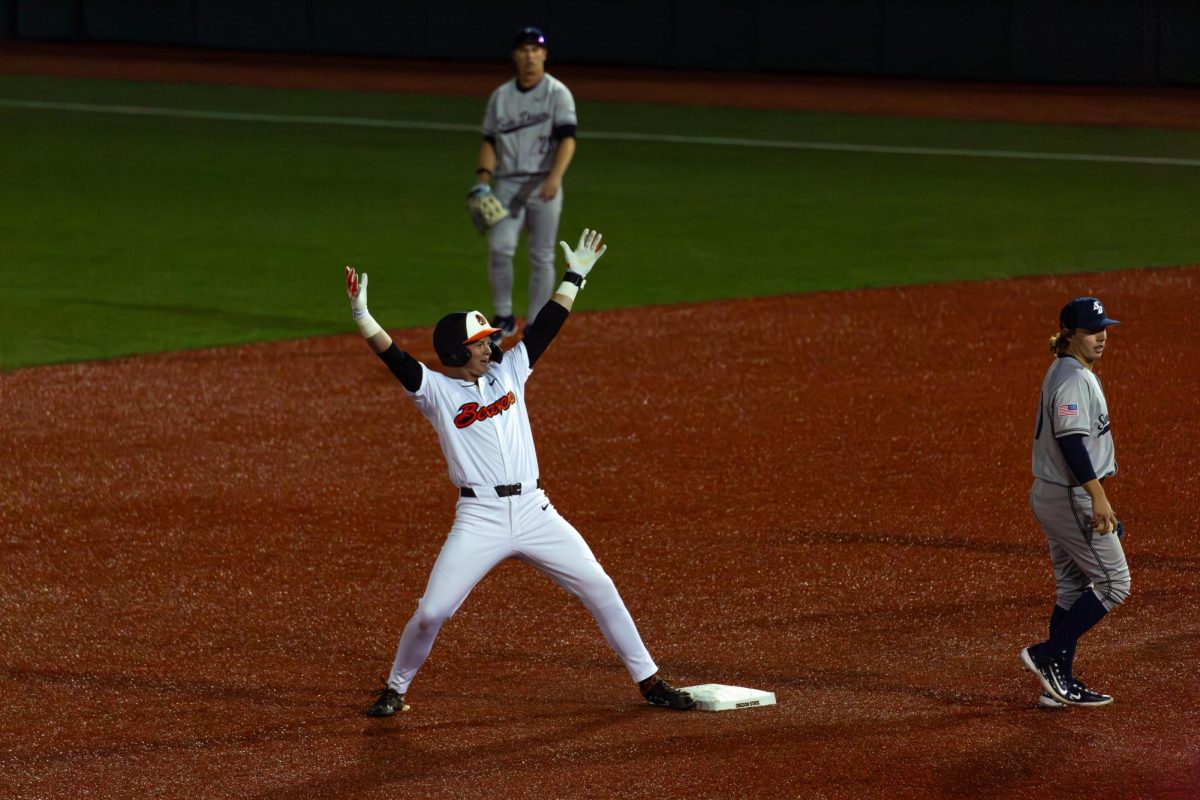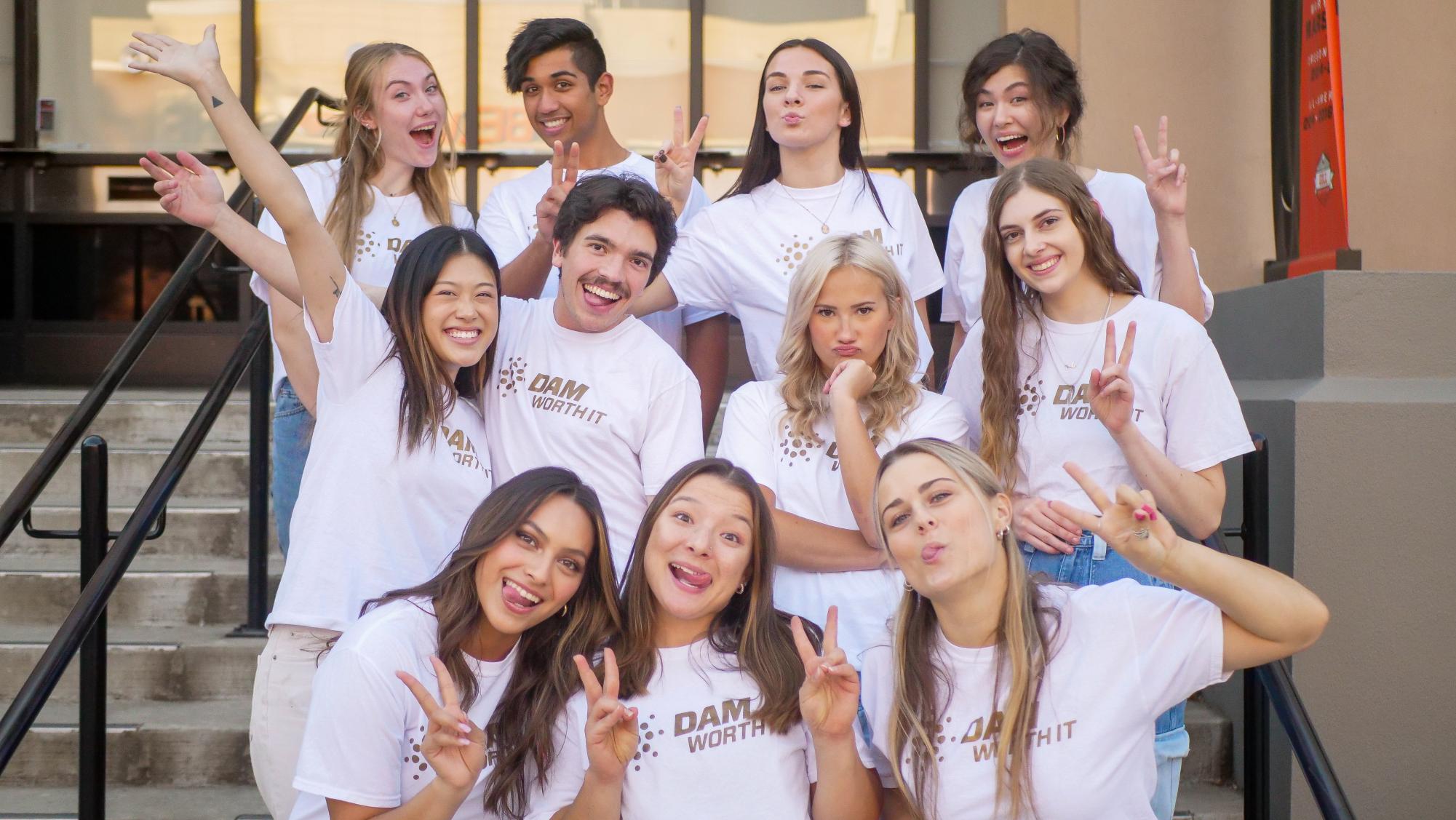Mental health was never acknowledged during Riley LeCocq’s time as a high school athlete.
“(Mental health) definitely wasn’t talked about amongst my teammates at all, in gymnastics or in the gym at all and so seeing that Dam Worth It was really supported by the school actually was part of the reason that I wanted to go to Oregon State,” said LeCocq, who is now president of the Oregon State University chapter of Dam Worth It.
The organization, which began at OSU and has become a non-profit with chapters nationwide, works to address the stigma surrounding mental health in college athletics.
The organization was started in 2017 by gymnast Taylor Ricci and soccer player Nathan Braaten, both of whom lost teammates to suicide in the same year.
“It was really hard for them. They were going through a lot. All athletics was going through a lot after having that happen,” LeCocq said.
Together they founded the Dam Worth It company, which has now expanded to four universities across the country. The two athletes noticed a stigma that existed on campus, and wanted to change that and start conversations.
“They would go to appointments at (Counseling and Psychological Services) and then hide their athlete backpacks so that no one would see that they were going to counseling,” LeCocq said. “Especially within athletics it’s like a big stigma to seek mental health help and not just tough it up.”
According to their website , the company’s mission is, “to end the stigma around mental health at colleges and universities across the country through the power of sport, storytelling and community creation,” something LeCocq said the OSU chapter continuously works towards.
Sasha Delman, a member of the women’s rowing team and vice president of the OSU chapter, explained why the group’s presence and advocacy on campus is important to her as an athlete.
“We can talk to our coaches on an individual level but the whole team doesn’t really have an open dialogue about mental health struggles or what resources we have available,” Delman said.
Not only has Delman noticed a lack of conversation regarding mental health with her coaches, but a lack of conversation on a larger scale as well.
“Even our athletic director, Scott Barnes, he comes in and he’s like ‘you guys are doing great things out on the field,’ and he’s not talking about all the things we’re doing in the classroom, we’re doing for ourselves (or) to take care of ourselves,” Delman said.
However, LeCocq said the OSU chapter of Dam Worth It is continuously working to make their presence on campus known.
This year the team is working on creating more social media outreach, planning more events and partnerships, and is aiming to integrate more with athletics.
“We want to make sure that people know who we are and why we’re doing what we’re doing. Not just for like, ‘Oh (to) know what Dam Worth It is,’ but to know that we’re here and we’re talking about ending the stigma around mental health,” said LeCocq.
One of the main ways the organization does outreach is through athletic events. One game per year, per sport is designated as a Dam Worth It game where they host a table outside, the announcer will read a message, and fans and athletes will fill out signs.
“Probably the most recognizable thing about Dam Worth It is these signs that we do at games and it’s like, ‘I’m Dam Worth It because,’ and it’s a fill in the blank, and it’s not because your an athlete, it’s not because of anything else, it’s something about you,” LeCocq said.


















































































![Newspaper clipping from February 25, 1970 in the Daily Barometer showing an article written by Bob Allen, past Barometer Editor. This article was written to spotlight both the student body’s lack of participation with student government at the time in conjunction with their class representatives response. [It’s important to note ASOSU was not structured identically to today’s standards, likely having a president on behalf of each class work together as one entity as opposed to one president representing all classes.]](https://dailybaro.orangemedianetwork.com/wp-content/uploads/2025/03/Screenshot-2025-03-12-1.00.42-PM-e1741811160853.png)
























